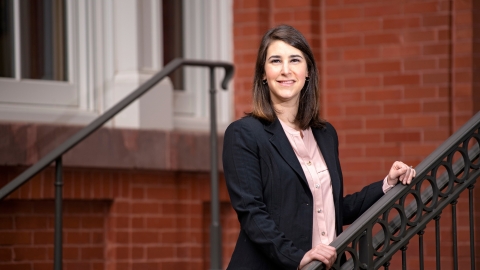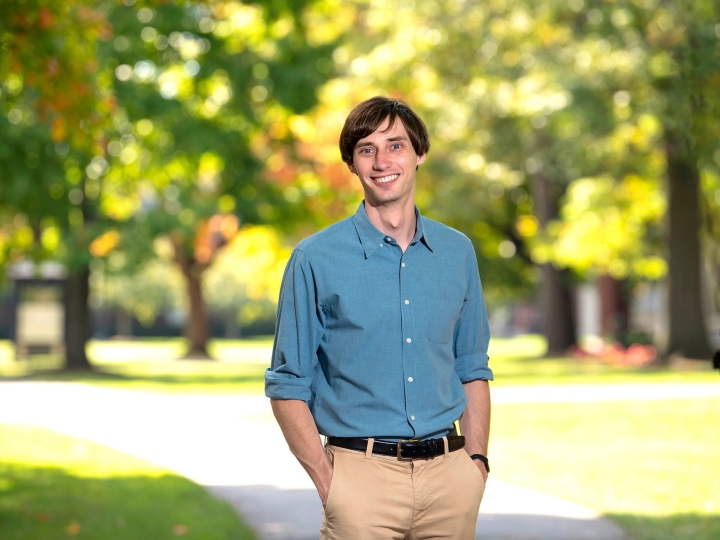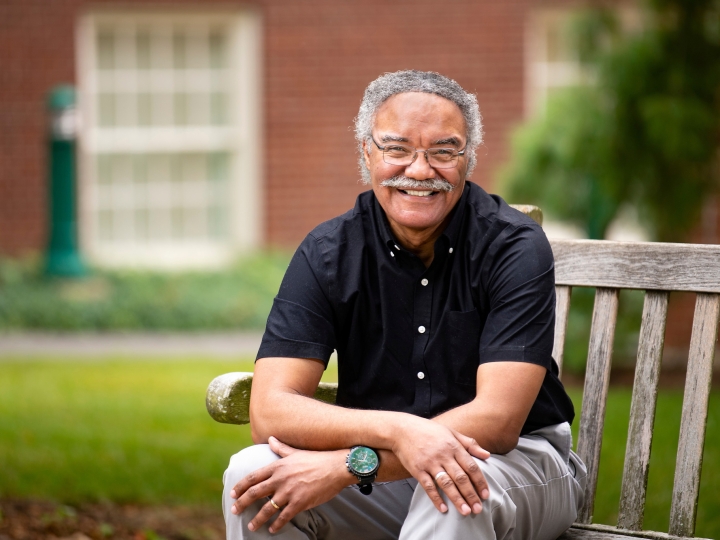
Anna Baker, Psychology
February 26, 2021
Students are always coming up with ideas that I don’t think of. They come up with creative ways of doing things and see situations with fresh eyes. It’s wonderful that they’re so excited and passionate about research in those ways.
Analyzing the intricate relationship between chronic illness and anxiety — and identifying strategies to ease both — has been psychology professor Anna Baker's passion since her days as a Ph.D. student. Now, as the leader of Bucknell's Pediatric Behavioral Health Lab, she ensures that undergraduates have a direct hand in research that yields crucial insights.
For several years, Baker's lab of six to 12 students has produced research on the experience of college students with chronic illness and how they transition to university settings. Their work, based on quantitative data sourced from students at colleges and universities across the U.S., zooms in on challenges these individuals face in finding new medical care providers, accessing mental health resources, and interactions with professors and peers. From designing the study to collecting the data to writing the peer-reviewed paper, Bucknell student researchers play instrumental roles in every aspect of the research.
Many college students with chronic illnesses, the researchers have found, often encounter student health professionals who are ill-equipped to fulfill their medical needs, causing them to return home frequently throughout the semester to see doctors. Others lack reliable access to transportation or convenient pharmacy delivery for medications, and even experience discrimination on campus.
"For those who experience these hurdles the most, levels of anxiety and depression are significantly higher," Baker says. "And for a lot of them who have to take medications regularly, adherence is very poor. They're not taking their medications or they're not taking them the way they should be, which is producing side effects and an increase in adverse symptoms."
Adherence, which is how closely individuals follow health recommendations and protocols from their doctors, is another of Baker's primary interests. In 2020, the clinical psychologist worked directly with the regional Geisinger health care system to evaluate guideline-based care, patients' communication with family about genetic test results, and cascade testing for disease-causing genes like BCRA1 and BCRA2, which are associated with breast cancer.
"Whether patients need to get mammograms more often or encourage family members to get genetic tests, we want to see how well they're following the steps they should take after receiving positive results," Baker explains. "So we're looking at how intervention in the form of motivational interviewing could help people improve adherence in those kinds of areas."
But encouraging patients to overcome anxiety regarding results and next steps is a persistent challenge, especially amid the pandemic "when people are delaying care or are scared to go to hospitals," she says. "Anxiety is key to so many behaviors regarding wellness and health."
When it comes to addressing anxiety for college students with serious medical needs, Baker and her students hope to test the efficacy of resources like peer support groups and courses that help students with chronic illnesses gain self-advocacy skills — hopefully in collaboration with Bucknell's own student health center. Pushing research further to develop real solutions is what Baker loves most about partnering with students in the pediatric lab.
"Our student researchers at Bucknell are especially motivated and passionate," she says. "Their excitement to be in the field and get experience — while helping students with chronic illnesses in the process — helps me stay excited and connects me back to why I do this work."

